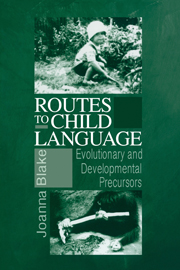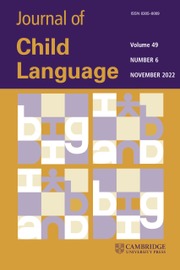The Onset of Language
The Onset of Language outlines an approach to the development of expressive and communicative behaviour from early infancy to the onset of single word utterances. Nobuo Masataka's research is rooted in ethology and dynamic action theory. He argues that expressive and communicative actions are organized as a complex and cooperative system with other elements of the infant's physiology, behaviour and the social environments. Overall, humans are provided with a finite set of specific behaviour patterns, each of which is phylogenetically inherited as a primate species. However, the patterns are uniquely organized during ontogeny and a coordinated structure emerges which eventually leads us to acquire language. This fascinating book offers exciting insights into the precursors of speech and will be of interest to researchers and students of psychology, linguistics and animal behaviour biology.
- Offers new insights into the precursors of speech
- Argues for spoken language acquisition as a process of species-specific communicative competence
- Is distinctive in its theoretical orientation towards ethology and dynamical system approach
Product details
December 2007Paperback
9780521049573
296 pages
228 × 151 × 17 mm
0.456kg
24 b/w illus. 14 tables
Available
Table of Contents
- List of figures
- List of tables
- Acknowledgements
- 1. Introduction
- 2. The development of the ability to take turns
- 3. Cooing in three-month-old infants
- 4. The development of vocal imitation
- 5. How infant-directed speech influences infant vocal development
- 6. From laughter to babbling
- 7. Earliest language development in sign language
- 8. From babbling to speaking
- 9. Summary and conclusion
- References
- Index.










